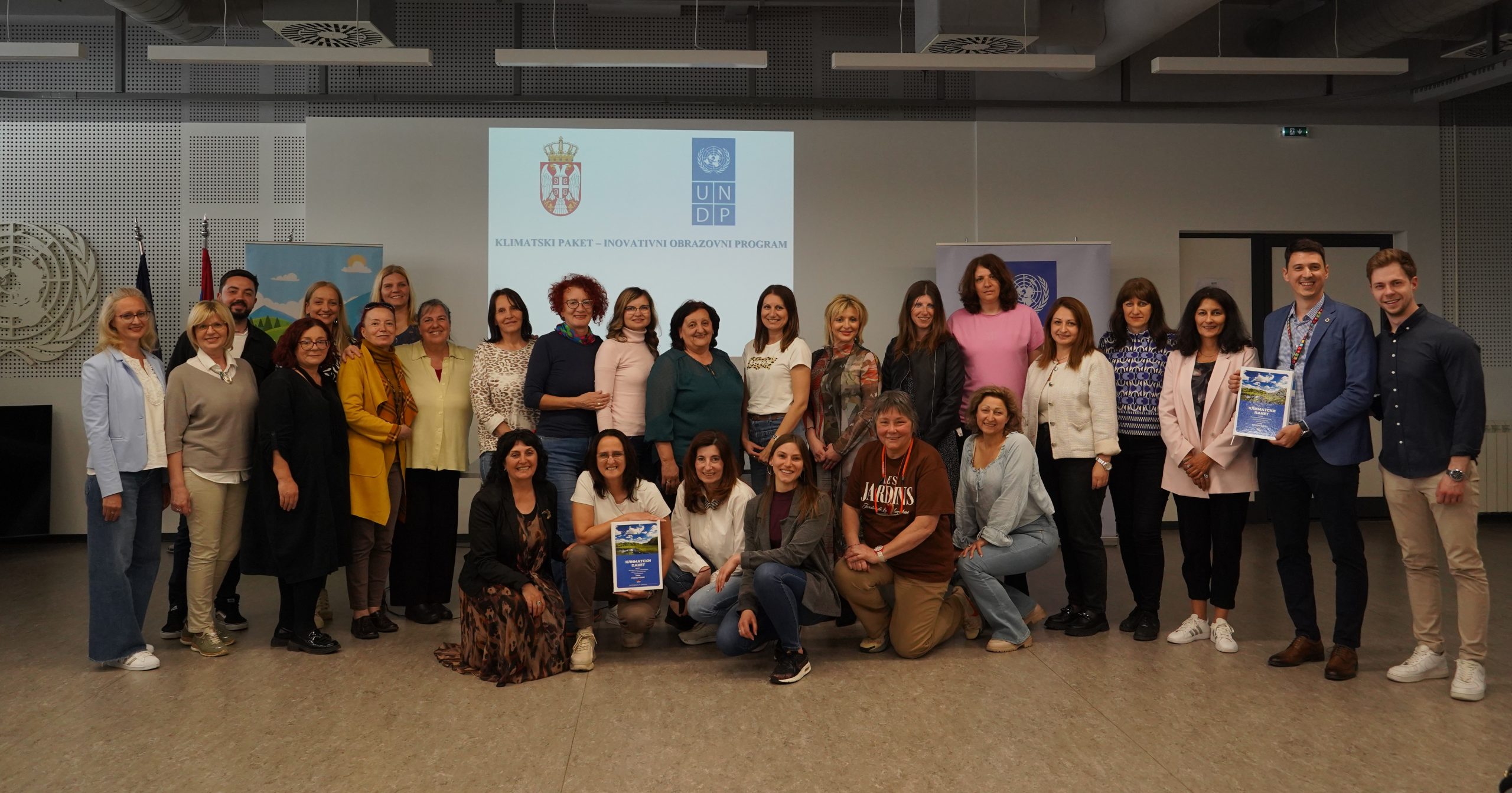The second National Workshop within the “Climate Box” project was held on May 27, 2025, in Belgrade (UN House). The event was attended by 30 teachers and associates from 17 different Eco-Schools across Serbia.
The workshop was opened on behalf of the association Environmental Ambassadors for Sustainable Development by Ivana Zarić Munitlak. In the introductory part, Malina Popović from the Institute for Improvement of Education also addressed the attendees. Milan Cerovac from UNDP welcomed the participants and briefly presented the project’s achievements so far in the Republic of Serbia.
The project has been implemented since 2020 under the supervision of UNDP, with the participation of organizations such as the Environmental Ambassadors for Sustainable Development, Zlatibor Circle, and Mikser. The online version of the Climate Box is available on the project’s website: http://klimatskipaket.klimatskepromene.rs/index.php/udzbenik/
Participants received printed copies of the “Climate Box” which they will use as a resource in their future work in formal and non-formal education with students. They will be able to address climate challenges in an innovative, creative, and scientifically grounded manner.
From the Zlatibor Circle organization, Zorica Milosavljević presented an improved version of the Climate Box, with particular emphasis on the Teacher’s Manual and Guide and Vesna Belčević spoke about the “Green Initiative for the Local Community” project, which was inspired by the content of the Climate Box.
Additionally, Zorica Milosavljević introduced the augMentor project, which integrates elements of artificial intelligence into the educational system through a course based on the Climate Box content.
Aleksandra Malušev from Mikser organization demonstrated how students can become educators in their communities by using creative workshops (scriptwriting, filming short movies, preparing plays, organizing school actions, etc.) as tools to raise awareness about climate change and sustainable development.
Dr. Ivana Krulj from the Academy of Technical-Vocational Studies in Niš explained basic concepts such as Albedo and the greenhouse effect during her lecture.
Following this, there was an online session presenting winning solutions from the 2024 school competition, as well as sharing impressions from the international competition held in Kazakhstan, in which students Dunja, Natalija, and Aleksej participated along with their mentors from Eco-Schools. This presentation served as inspiration and motivation for participation in this year’s climate change-themed competition, with the deadline for submission set for June 7, 2025.
After a lunch break, Marina Drndarski conducted a master class on “Place-based Learning about Climate Change,” emphasizing the importance of connecting and organizing actions at the local community level. This session served as an introduction to work in smaller groups, where guidelines for developing school projects on climate change adaptation and mitigation measures were discussed. Participants shared dilemmas and obstacles faced during project implementation, and through discussion, they arrived at concrete suggestions for new actions and potential partnerships. This approach empowered teachers and enabled them to openly share their experiences, challenges, and advice.
At the end of the workshop, Zorica Milosavljević and Milan Cerovac summarized the key conclusions of the gathering, thanked all participants for their involvement, and expressed hope that future gatherings would be more frequent and larger in size.

